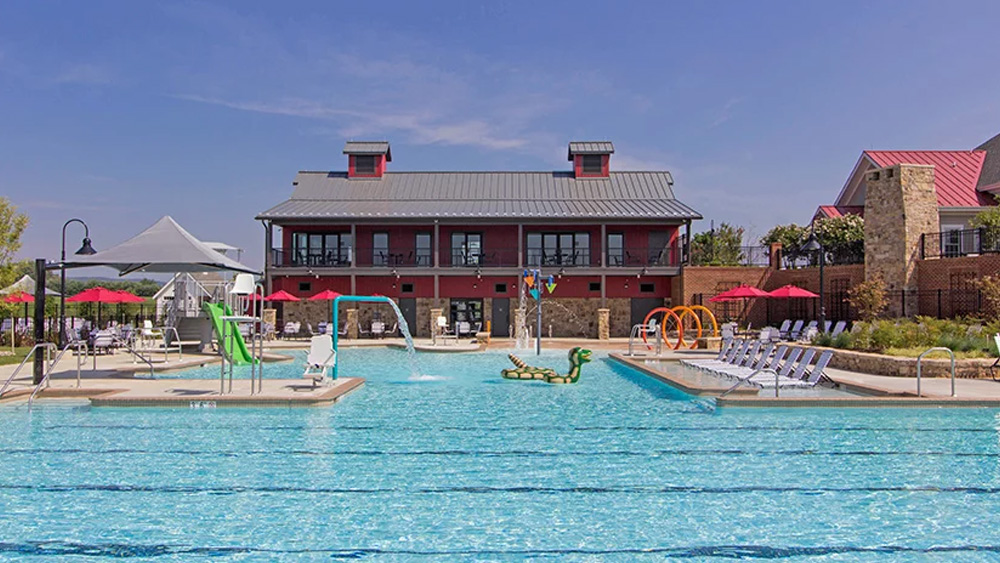With the abundance of families at Brunswick Crossing’s new community pool, it’s easy for kids to make friends, right? It may not be as simple as many parents think. Often times, kids choose the comfort of their favorite pool toys and floaties to the spontaneity of a new friendship. To help your little ones make friends around the neighborhood, take Ryan Homes at Brunswick Crossing’s few tips:
What You Can Do Right Away:-
Put down the electronics. In today's world, technology and water mix. It's not literal, but many children choose to bring a cell phone, tablet, or music device to the pool for entertainment. Instead of letting your child plug in, suggest that they jump in the pool or go down the slide. They might meet a new friend along the way.
-
Host a get-together. The easiest way for a child to make friends is by putting them in front of a few potential buddies. If you see that you kid is clicking with someone, ask him or her to come over so the whole squad can eat lunch before hitting the pool. If you want to continue the fun, host a neighborhood barbecue, or set up a sleepover for your child before the next swim meet.
-
Share. Sharing is definitely caring. Encourage your child to share their snacks and toys with other little kids at the pool. This will help them make quick connections.
-
Encourage them to include other children in games. If you have a confident, bright-eyed child, chances are that you know this trick all too well. Set an example by talking to other adults that your child doesn't recognize at the pool. When they notice the positive interaction, it will encourage them to politely invite an unfamiliar face to a rousing game of Marco Polo or Goofy.
How You Can Help in the Long Run:
-
Understand your child’s form of social interaction. Your child might not interact with people the same way that you do. They may prefer group settings rather than one-on-one situations, or they might continuously befriend one type of personality. Ask if they'd like to swim with a few new faces or if they prefer reading on the sundeck next to an old pal. By allowing them to show you who they relate to, you can better understand what kind of friends they’ll be likely to make in the future.
-
Build social skills at home. Before you pack up the pool towels, try some social coaching at home. According to the Child Mind Institute, “social skills don’t come naturally to kids,” but wanting to be in relationships does. Emphasize taking turns and share positive thoughts at home while you're getting ready for a splash. Once you explain to your child that friends will expect the same good behavior (while demonstrating what ideal social behavior looks like), your child will have a better understanding of how to interact with their peers.
-
Remember that every child is different. Dr. Rachel Bushman, a psychologist who works with anxious kids, says children have different degrees of comfort. A child who prefers snacking down poolside in small groups isn’t avoiding the more rambunctious kids who are racing in the competition lanes – it’s just what they prefer. This means it’s important for parents to set expectations accordingly because not every kid is going to dive in headfirst (literally).
-
Teach them that one great friend is worth ten good friends. Children are often worried about being the most popular kid in class – or on the swim team. Make sure you provide perspective and advise that a handful of quality friends are better than a large number of decent friends.



